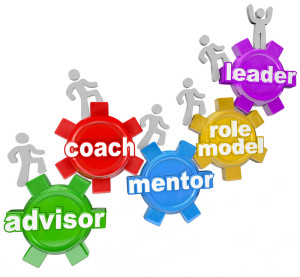Did you know that November 8th was national STEM day? I admit that I didn’t realize it until I was tagged in a comment on a LinkedIn post about national STEM day. Geeta Nayyar, SVP Executive Medical Director at Salesforce, shared some important but disappointing statistics on women and STEM in that post. While women make up about 47% of the total workforce, she notes that we are statistically underrepresented in science, technology, engineering, and mathematics – STEM fields. Women make up only 29% of the STEM labor force, 19% of STEM company board members are women, and among STEM industry CEOs, only 3% are women. No wonder I so often am the only woman in the Zoom room when talking with technology firms. We can and must do better.
Director at Salesforce, shared some important but disappointing statistics on women and STEM in that post. While women make up about 47% of the total workforce, she notes that we are statistically underrepresented in science, technology, engineering, and mathematics – STEM fields. Women make up only 29% of the STEM labor force, 19% of STEM company board members are women, and among STEM industry CEOs, only 3% are women. No wonder I so often am the only woman in the Zoom room when talking with technology firms. We can and must do better.
In her post, Geeta encouraged people to tag inspiring women leaders they know. I’m grateful and humbled that Linda Stotsky, Content Marketing Strategist at Boston Software Systems, tagged me and several other women in her comment.
I have long been a proponent of more women going into STEM fields and have willingly shared my own stories. I started out as a programmer in the early 1980s and then moved into health IT management for the rest of my career – a field that has been male dominated. I recall a long stretch in the late 1980s when I was the only woman on an all-male IT leadership team and the challenges I faced. Challenges I overcame and that I have helped other women overcome since then.
I was honored to be one of the first women interviewed for the new podcast series, The Game-Changing Women of Healthcare, produced by The Krinsky Company. In this interview I share stories and lessons from my career, give career advice, and provide tips for developing next generation leaders.
As I always say, you have to own your own career and be open to the possibilities. Technology continues to evolve at a rapid pace and the possibilities are unlimited. If a STEM career is right for you, go for it. Be sure to find role models and mentors who can support you and help you overcome the challenges you may face.
Related Posts:
Make career choices right for you
10 tips for next generation leaders
Career advice revisited
When to use a career coach
 career coaching for many health IT leaders in recent years – all at different stages of their professional development and career. Over the years, I’ve written on the value of coaching and professional development. Here is a short list of posts worth revisiting:
career coaching for many health IT leaders in recent years – all at different stages of their professional development and career. Over the years, I’ve written on the value of coaching and professional development. Here is a short list of posts worth revisiting:








